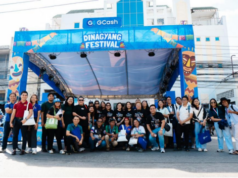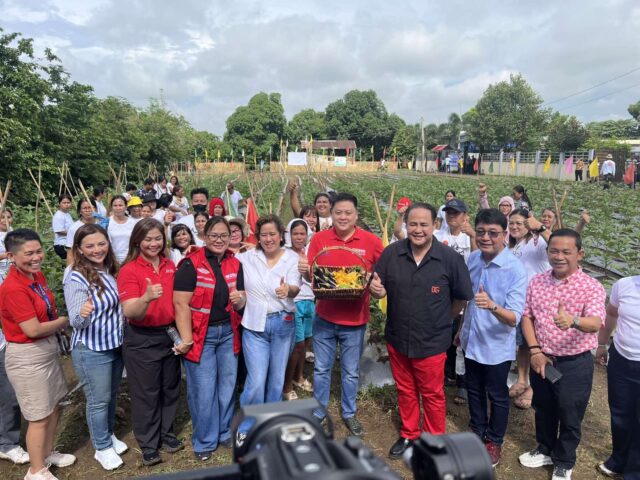
SAN LUIS, Pampanga (PIA) – The Department of Social Welfare and Development (DSWD) continues to boost its efforts on food security and livelihood in Pampanga through the implementation of Project LAWA (Local Adoption to Water Access) and BINHI (Breaking Insufficiency through Nutritious Harvest for the Impoverished).
As of June 2025, a total of 178 LAWA and 258 BINHI sites are operational across 47 local government units in Central Luzon, benefiting hundreds of families through sustainable farming and community-based livelihood.
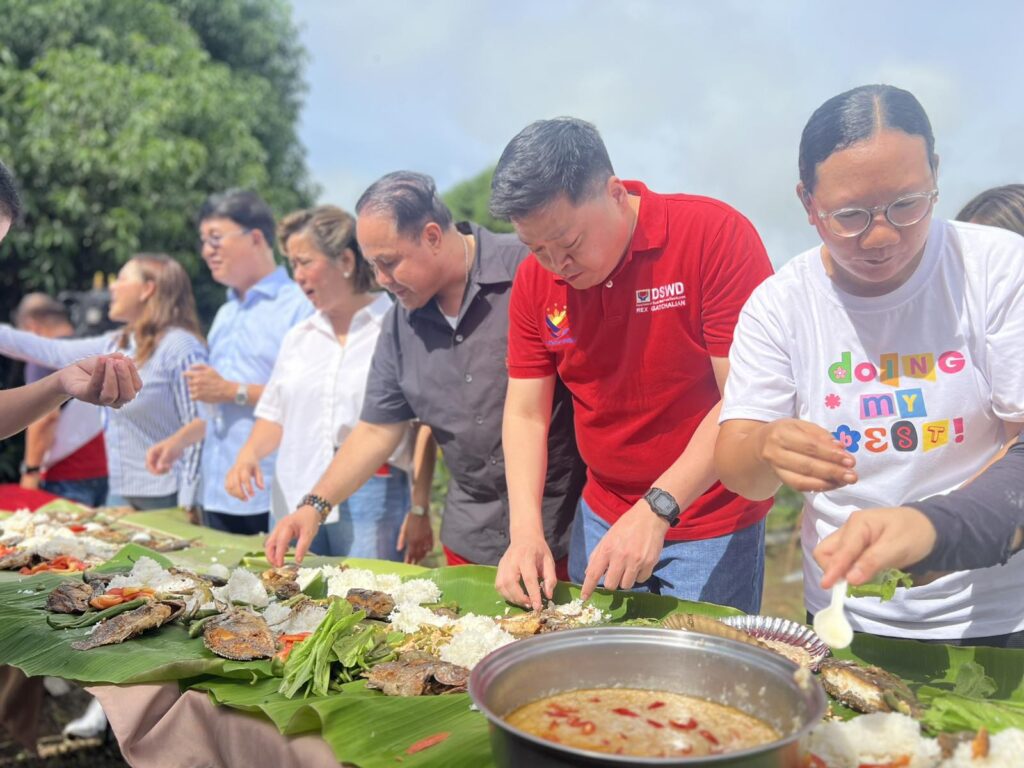
DSWD Secretary Rex Gatchalian visited one of the project sites in Sitio Pasum, Barangay San Isidro, San Luis, Pampanga, to assess the progress of the community farm initiatives.
Gatchalian emphasized the growing impact of the project, especially in terms of self-sufficiency, income generation, and community resilience.
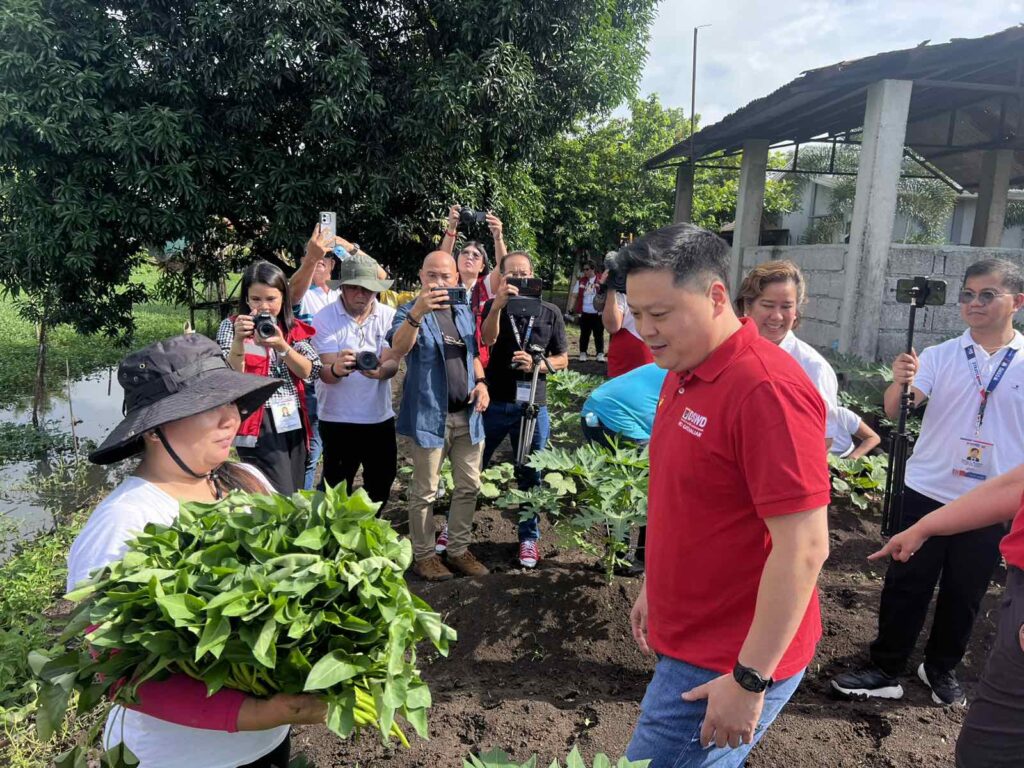
“We spoke with beneficiaries. Some are already earning while also consuming what they produce, others are using their cash-for-work earnings to start small businesses like selling frozen goods or school supplies. The benefits of this program are intertwined, food security, livelihood, and empowerment,” he said.
The secretary added that such urban, community, or rural farms play a vital role especially during times of crisis, ensuring that communities have a steady food source even when supply chains are disrupted.
According to Gatchalian, over 2,800 community gardens have been established nationwide under the program, with ongoing expansion plans.
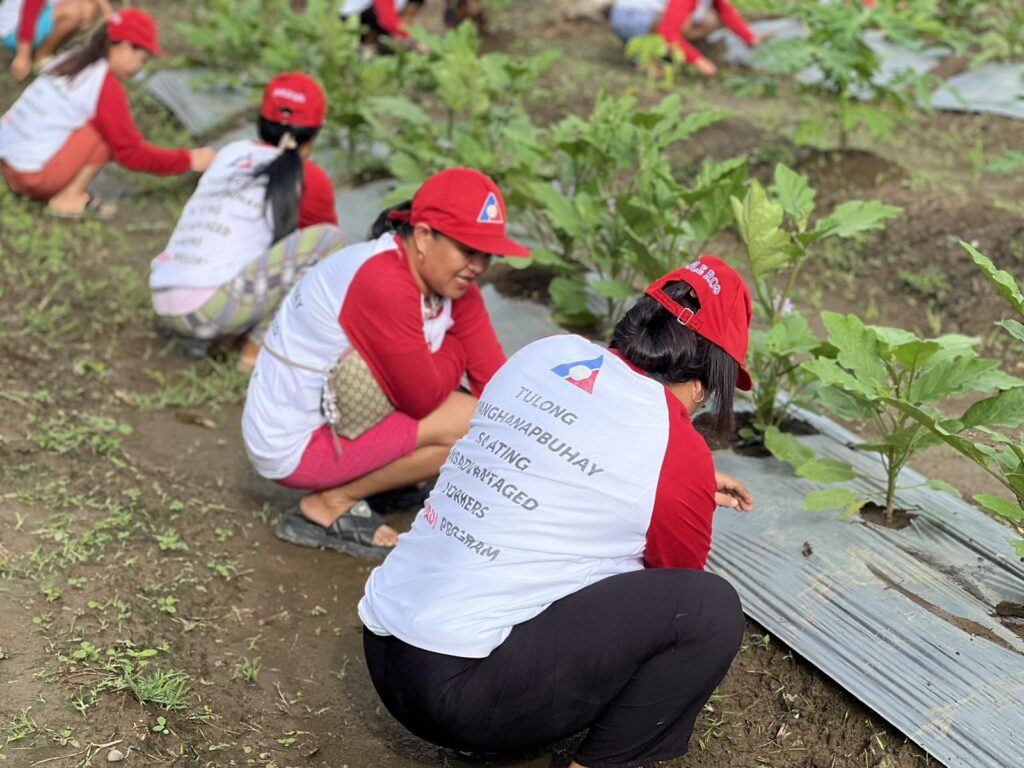
“These farms produce food right within communities. Some harvests are sold in local markets, others are consumed at home. What’s important is that families are becoming more self-reliant,” he noted.
In San Luis, the projects have also provided inclusive opportunities for all sectors, according to Municipal Risk Reduction and Disaster Management Officer Robert Sagum.
“Before, vacant lots were underutilized, and sectors like persons with disabilities and solo parents felt excluded. Now, they are front and center as beneficiaries. Even non-participating residents have been inspired to start their own gardens after seeing the value of this initiative,” he said
Elvira Salas, a local beneficiary, shared how the project has transformed her community.
“We learned how to plant and care for vegetables and our environment. It helps us financially, especially when we sell excess harvests. It’s a huge help for families, from paying bills to supporting students,” Salas said.
Project Lawa and Binhi form part of DSWD’s climate resilience and poverty reduction agenda by promoting sustainable agriculture and livelihood practices at the grassroots level. (MJSC/MAGP, PIA Region 3-Pampanga GIP)




